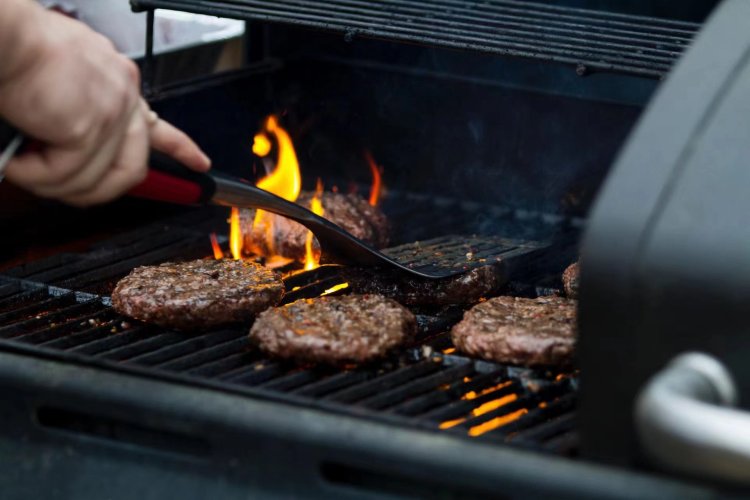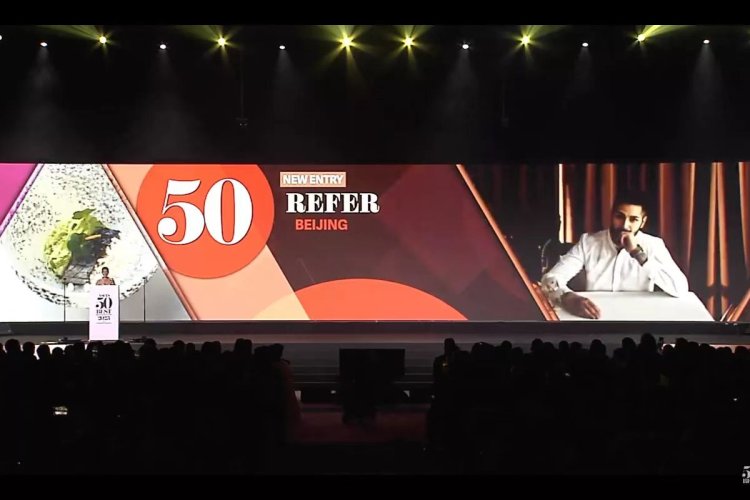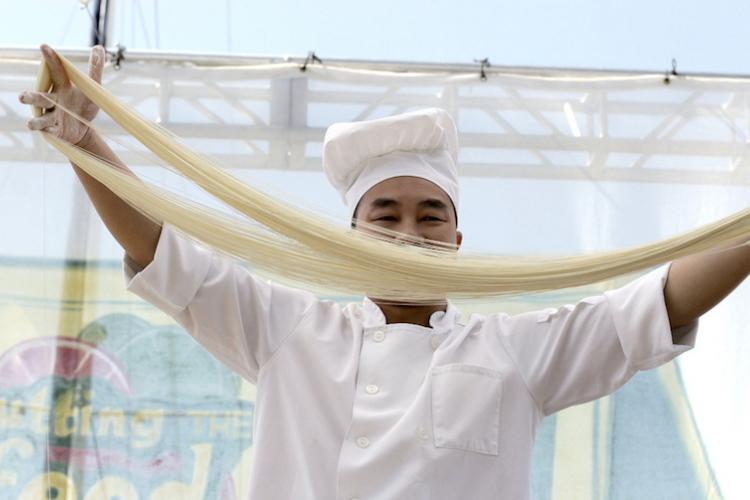Wrap It Up (Or Don't): Toxic Plastic Wrap Found In Beijing Supermarkets
You may want to think twice before choosing to buy wrapped produce at your local supermarket. A recent test conducted on 16 samples of plastic wrap from Beijing, Shanghai and Guangzhou showed that 15 of the 16 contained toxic plasticizers, according to a CCTV report. And if you care about the environment or your sexual organs, then you'll want to keep reading.
In yet another potentially dangerous food-related incident since consumers were afraid to buy chicken just a few months ago, some Beijing supermarkets still use a film that the General Administration of Quality Supervision, Inspection and Quarantine in China banned in 2005 for having bis(2-ethylhexyl) adipate (DEHA). DEHA is a material that has been linked to cancer in lab rats, is arguably harmful to the environment and factory workers handling the plastic (Apple doesn't use PVC in their chargers for this reason). Dong Jinshi, the vice president of the International Food Packaging Association even admitted the plasticizers in PVC could pose a risk to sexual health in both adults and children:
"DEHA could lead to the disorder of endocrine system, impair male sexual function and cause female sexual precocity, and pose big risks to the genital development of infants," he said.
Turns out, using DEHA is much cheaper than using the safer dioctyl adipate (DOA), and there's no telling which stores in Beijing go for the money-saving option.
But before you take your grocery list to an open air food market and start fuming about whether Beijing's (shrink-wrapped) food is really all that good for you, think of this: The U.S. is still using PVC in just about everything from clothing to blood bags. Only last year did one major U.S. healthcare provider opt to discontinue purchasing hospital equipment containing PVC.
In the meantime, stay smart, and don't stick those plastic wrapped veggies (if you do buy them) in the microwave. Plasticizers are generally believed to release toxins when heated up, and these are more easily transferred to fatty foods. Dr Richard Saint Cyr of My Health Beijing also strongly recommends that people use glass containers instead of plastic ones.
"Only use PE plastic cling wrap; and never have any plastic wrap laying on top of microwaving liquids," he added.
You can read more at his blog here.
Photo: feministjulie on flickr






